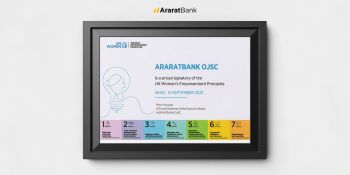Character: competitive advantage or responsibility? Five distinguishing factors
News |

Character is the foundation on which both professional success and long-term relationship stability are built.
In the modern world, where skills, knowledge, and experience are extremely important, one key component is often overlooked: character. However, it is character that serves as the foundation upon which both professional success and the stability of long-term relationships are built.
But the question remains: can character become a competitive advantage, or is it more of a responsibility—a limiting and obligating factor?
To answer this question, we need to explore five key factors that distinguish a person with a strong character from the rest.
1. Reliability and Authority
One of the competitive advantages in business and the job market is reliability. People often choose a partner not only for their skills but also for the alignment of their words and actions.
-
A reliable person becomes a trustworthy partner and leader.
-
Their word is seen as a guarantee.
-
Authority is the foundation of long-term connections, which are often more valuable than short-term profits.
Here, character becomes a strength that provides trust that cannot be bought or faked.
2. Flexibility and Adaptability
Character is often perceived as a "hard" thing, as the unchanging core of a person's personality. But in reality, one of the characteristics of a strong character is also flexibility.
-
A flexible person easily adapts to a changing environment.
-
They are able to accept new ideas and revise their approaches.
-
Flexibility allows them to withstand uncertainty and quickly recover from failures.
Thus, character does not limit, but rather provides a competitive advantage in changing conditions.
3. Value System and Responsibility
Character is also a responsibility in that it reflects a person's values. If a person presents themselves as fair and honest, they are obligated to act that way in any situation.
-
The value system determines what is acceptable and what is unacceptable.
-
Character defines the "natural boundaries" of behavior.
-
This responsibility can be heavy, but in the long run, it strengthens trust and prevents conflicts.
This factor shows that character is both an advantage and a responsibility.
4. Resilience
People with high character typically possess psychological resilience. They can withstand stress and pressure without losing their balance.
-
This is especially important for leaders and entrepreneurs who face challenges every day.
-
The ability to be resilient attracts partners and employees, as they see stability and strength.
-
This makes character not only a defensive but also a competitive tool.
5. The Power to Persuade and Influence
The final factor relates to influence. Character is directly reflected in communication.
-
A person whose character combines honesty, determination, and confidence has greater persuasive power.
-
Such individuals become leaders not by position, but by character.
-
Their influence extends beyond the professional sphere and becomes social as well.
From this, we can conclude that character is not only a personal trait but also social capital.
***
Character can be viewed as two-sided: it is simultaneously a competitive advantage and a responsibility.
-
It is an advantage when it becomes the basis for trust, influence, and long-term success.
-
It is a responsibility when a person commits to staying true to their values even in difficult circumstances.
Thus, character is the factor that always prevails in the long run. Technical knowledge can be learned, experience can be accumulated, but true character is the stable foundation that creates a trustworthy and influential person.
*The article was also prepared using data from AI․
Follow us in social networks
-

The Big Impact of Small Financial Mistakes: How Minor Errors Threaten an Entire Business
2025/12/07/ 17:56 -

2026 Business Trends: From AI Acceleration to Evolving Customer Behavior
2025/12/06/ 18:06 -

Why Money Has a Psychological Impact on Us: How to Avoid Losing Your Sense of Self
2025/12/05/ 19:00 -

AraratBank Participates in “Women’s Empowerment Principles in Armenia” Conference
2025/12/05/ 18:07 -

How to Free Yourself From Overthinking and Make Confident Choices Every Time
2025/12/04/ 19:00 -

Acba bank and France’s Proparco to continue strengthening their long-term strategic partnership
2025/12/04/ 14:24 -

The power of Armenian nature, the secret of your beauty.
2025/12/04/ 10:44 -

How the People Who Truly Earn Big Money Think Introduction
2025/12/03/ 19:00 -

€500,000 Investment for Circular Economy Development in Armenia
2025/12/03/ 16:21 -

AraratBank Joins Armenia's New Greening Initiative: 100 Hectares of New Forest within Three Years
2025/12/03/ 12:36
 Subscribe
Subscribe







